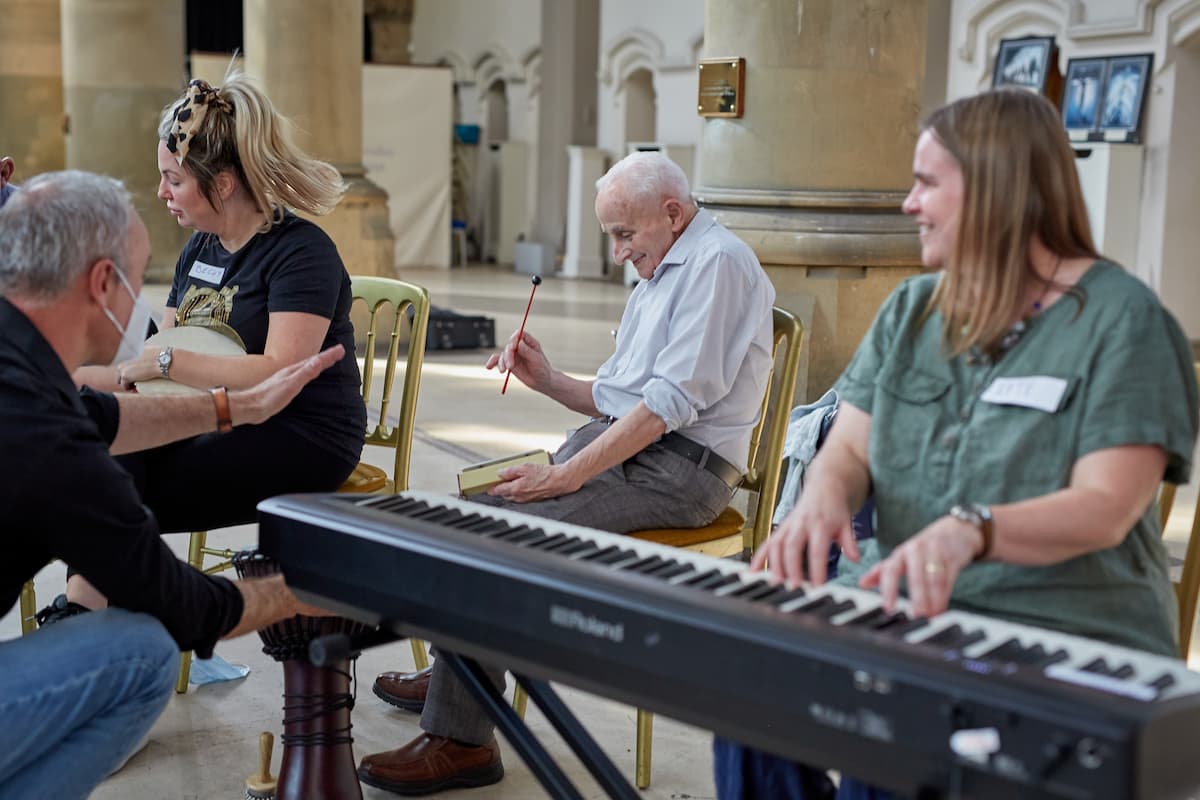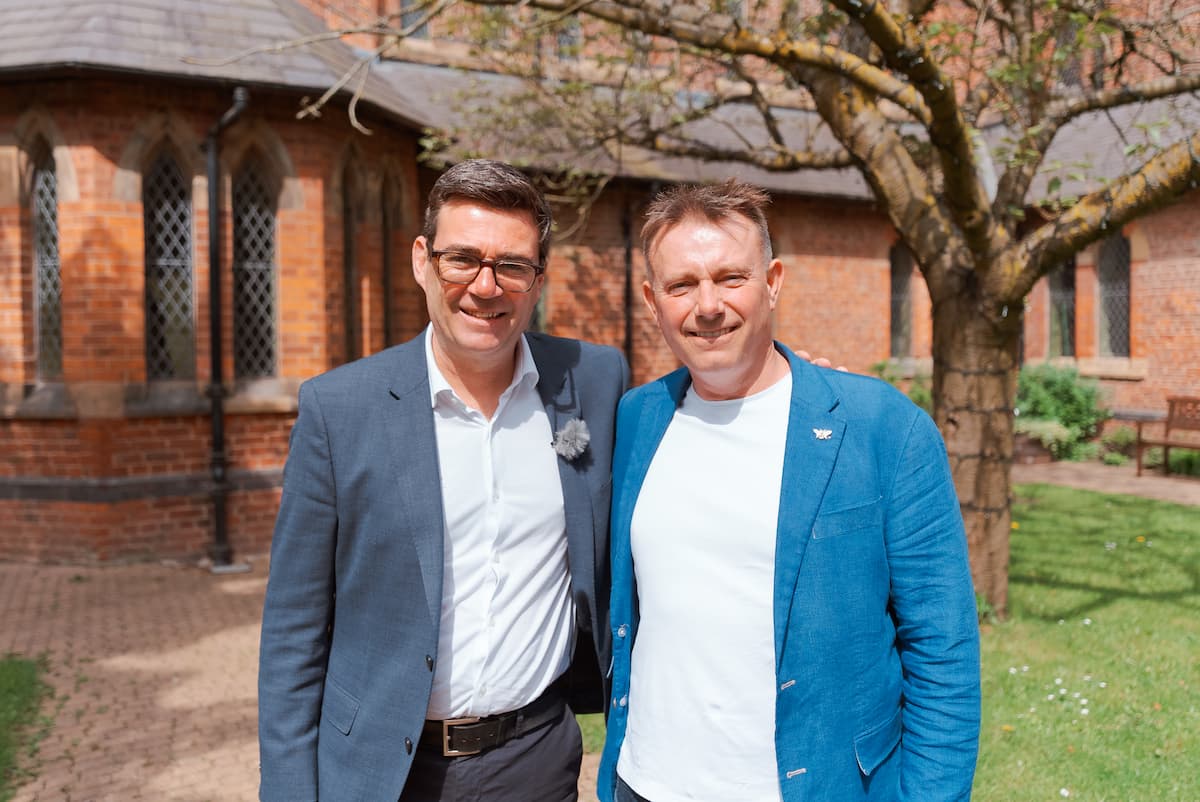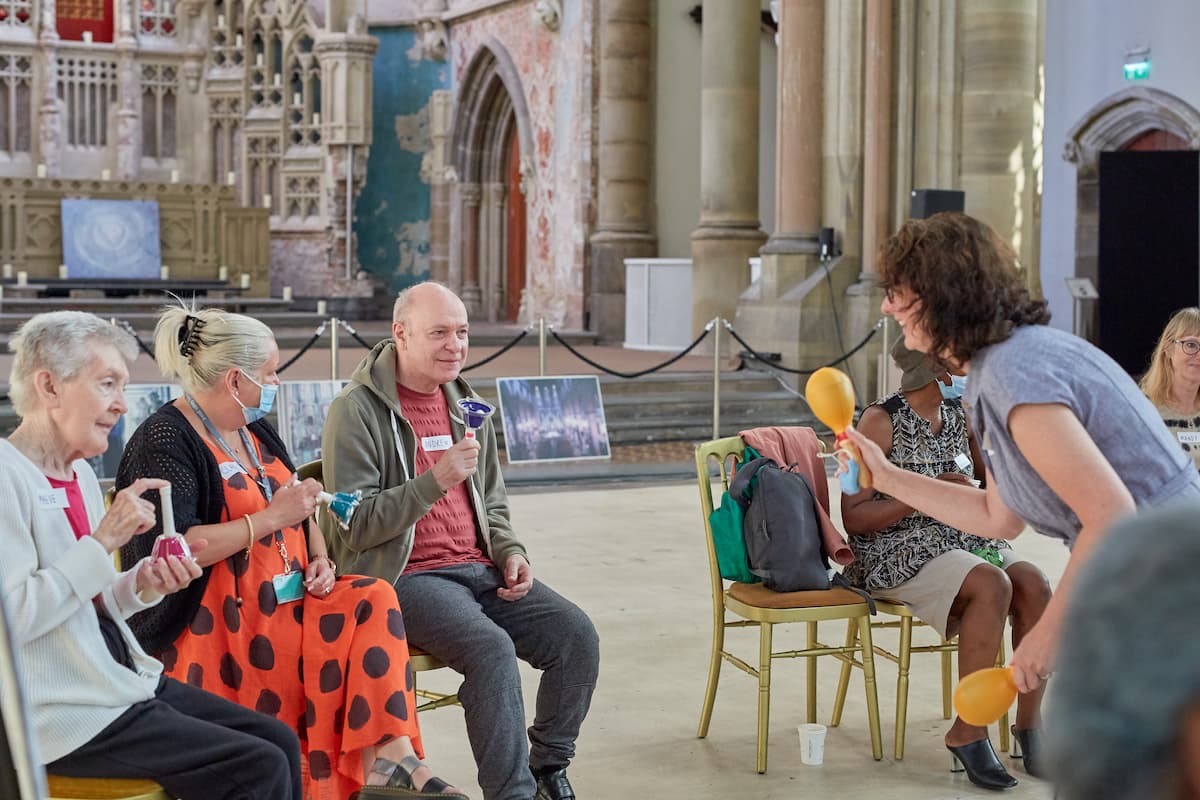by Frances Wilson, Interlude
According to the UK’s National Health Service, there are over 940,000 people in the UK with dementia, with 1 in 11 people over the age of 65 being most affected. The care of people living with dementia in the UK costs more than £34bn each year, with the Alzheimer’s Society saying that by 2040, 1.6 million people in the UK will have dementia.

Manchester Camerata’s Music Cafe at the Monastery in Gorton © Duncan Elliott
The Centre of Excellence for Music and Dementia is a new collaboration between the Manchester Camerata, a British chamber orchestra renowned for its innovative programming and pioneering outreach work, Alzheimer’s Society, and the University of Manchester. This will continue Manchester Camerata’s existing Music In Mind, a research-based music therapy programme, training a workforce of over 300 volunteer ‘Music Champions’, as well as developing Alzheimer’s Society’s ‘Singing for the Brain’, with the aim to offer musical support to people living with dementia across Greater Manchester. The long-term goal of the Centre of Excellence for Music and Dementia is to analyse how incorporating music into dementia care can reduce the need for intervention from healthcare services, reducing pressure on those services and care staff, as well as improving quality of life for patients, their carers, and families.

© Duncan Elliott
The Camerata’s Music Cafes, which have been running for more than a decade now, will provide support to over 1000 people currently living with dementia in the Manchester area. Created in partnership with the University of Manchester, these music champions use the fundamental principles of music therapy, bringing people living with dementia together to sing songs and perform vocal exercises that help improve brain activity and general wellbeing.

Bob Riley (CEO of Manchester Camerata) and Andy Burnham (Mayor of Greater Manchester) © Jay Cipriani
Speaking at the launch, Mayor of Manchester, Andy Burnham, said that Manchester is “a place that has always understood the power of music” and that the project will “unlock that power more fully and ensure that people everywhere, and in all settings, can benefit. For people living with dementia, who love music, the best thing you can do for them…is to reconnect them with that passion, because in that moment when they recognise that music, they are themselves again.” He highlighted the power of music to create connections: for families where a relative has dementia music can “give them glimpses of the person, and that’s why it’s so precious.” (interview with BBC Radio 3).

© Duncan Elliott
The project’s vital funding, totalling over £1million, will support three years of direct musical support activities across all of Greater Manchester’s 10 boroughs, starting in October 2024.
The project will have major significance in terms of ground-breaking research opportunities, and the intention is that the programme will grow into other areas of the National Health Service and areas of the country, with the hope that other musicians and other orchestras/ensembles may get involved.
“It’s one of the most joyous things any of us have ever experienced. It’s really changed how we view music and what it can do for people.” – Amina Hussain, flautist
No comments:
Post a Comment